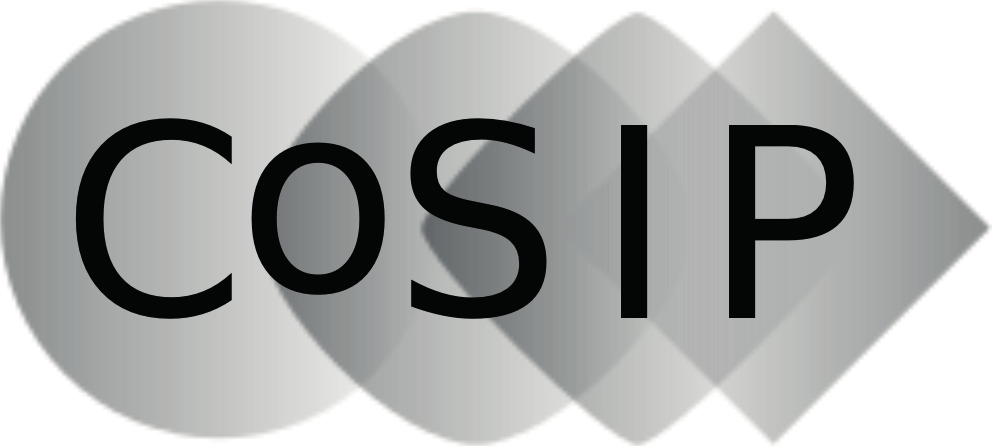DFG | Information für die Wissenschaft No 28 | 30. May 2014
Priority Programme “Compressed Sensing in Information Processing” (SPP 1798)
The Senate of the Deutsche Forschungsgemeinschaft (DFG, German Research Foundation) has instituted the Priority Programme “Compressed Sensing in Information Processing” (SPP 1798) in April 2014. It is intended to be in progress for six years with two funding periods of three years each. The expected starting date is April 2015.
Digital signal processing requires the conversion of analog signals in space and time to a discrete domain and vice versa. Conventional sampling relies on the Shannon Nyquist theorem which ensures complete reconstruction of a band limited signal by sampling at a rate twice the bandwidth. In contrast, compressed sensing follows the paradigm that a sparse signal may be sampled far below the Nyquist rate, but nevertheless may be completely recovered. Compressed sensing relies on two salient principles, sparsity and incoherence. Sparsity refers to the idea that the information rate of a signal is much smaller than expected from its bandwidth, so that the signal may be represented by a small number of elements in a proper basis or frame. Incoherence expresses the concept that signals with a sparse representation are spread out in the sampling domain.
Sparsity is encountered in signals of numerous applications like wireless information and communication technology, radar surveillance, and visual and audio signal processing, to name a few. In this Priority Programme, applications of compressed sensing in information processing will be emphasised, however, it is expected that the mathematical theory behind will receive significant impact and new directions from applied issues. Paired cooperation projects between engineers and applied mathematicians are particularly encouraged.
Investigating signals with respect to sparsity, bandwidth, dynamics, and statistical behaviour, sampling by compressed sensing methods, and reconstruction of the original signal forms the focus of the Priority Programme. We expect to cover the following areas:
using statistical prior information for compressed sensing
quantisation in compressed sensing
measurement design for compressed sensing
reconstruction algorithms for compressed sensing
low rank matrix recovery and matrix completion in signal processing
Application fields of major interest include:
spectrum sensing in wireless systems
channel and network coding
signal processing in communications
radar and synthetic aperture radar imaging
visual and audio signal processing
Beyond that the Priority Programme is open to proposals and scientific disciplines which may contribute to the focus areas.
The Priority Programme intends to support the academic career of young researchers through intense contact between different groups, workshops, and summer schools. It will also provide a gender equality programme and family friendly working conditions.
Further information concerning the research orientation of the programme can be found at the programme's website. The proposals for the initial three year phase (presumably April 2015 to March 2018) are invited with the deadline 1 October 2014. They have to be submitted via the DFG's portal elan for applications. Those applicants who do not yet have an account on elan (from earlier proposal submissions or from review tasks accomplished for DFG) need to register. The registration of a new account needs to be confirmed manually by DFG and should thus be requested no later than two weeks before the deadline. The proposals must be marked by “SPP 1798”, which should indicate how they fit into this programme as a whole, have to be submitted in English, and need to be prepared using the respective forms and guidelines in English language.
General information on proposals in the framework of a Priority Programme (in particular concerning eligibility and admissible funding requests) can be found in guideline 50.05 (part B). See also guideline 54.01 for instructions how to prepare a proposal. The specific proposal has to be structured according to form 54.012. However, it is admissible to prepare the proposal as a pdf-file, e.g., using LaTeX, instead of using the rtf-file which is available online.
Please notice the rules for publication lists that have been modified recently: Beside the general bibliography every proposal should include a list of up to ten publications that relate directly to the project. Further the number of publications that may be listed in any academic CV has been increased to up to ten as well. These publications need to be classified as a) refereed publications (published articles and monographs; accepted articles with note of acceptance by the journal) or b) other publications (e.g. preprints on arXiv).
The initial on-site review will presumably take place at RWTH Aachen University in the end of January 2015.
Further information
The DFG's electronic proposal processing system elan with proposal instructions and guidelines can be found at:
Proposal guidelines and preparation instructions are outlined in DFG forms 54.01en and 50.05en, which can be found on the DFG's website at:
More details about the programme can be obtained by downloading the full text of the Priority Programme proposal from: www.ti.rwth-aachen.de/SPP1798
For scientific enquiries about the scope of the programme please contact the coordinators:
Prof. Dr. Rudolf Mathar,
RWTH Aachen,
phone: +49 241 80-27700,
mathar@ti.rwth-aachen.deProf. Dr. Gitta Kutyniok,
TU Berlin,
phone: +49 30 314-25758,
kutyniok@math.tu-berlin.de
For administrative enquiries please contact at the DFG:
Dr.-Ing. Damian Dudek,
DFG,
Ingenieurwissenschaften,
Kennedyallee 40,
53175 Bonn,
phone: +49 228 885-2573,
Damian.Dudek@dfg.deGudrun Freitag,
DFG,
Kennedyallee 40,
53175 Bonn,
phone: +49 228 885-2623,
Fax: +49 228 885-2777,
Gudrun.Freitag@dfg.de

